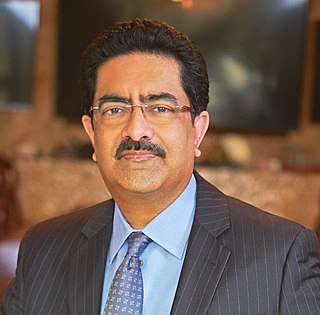A Quote by Raghuram Rajan
For nearly two centuries, scholars and politicians have debated the future of capitalism. Its critics, most prominent among them Karl Marx, have seen capitalism as intrinsically unstable, full of contradictions that will lead eventually to its collapse. Its supporters see it as the best way to allocate resources and rewards. Some even hint that the democratic capitalistic society is not just a phase in the historical evolution of economic systems but its ultimate end.
Quote Topics
Among
Best
Best Way
Capitalism
Centuries
Collapse
Contradictions
Critics
Democratic
Economic
Economic System
Economic Systems
End
Even
Eventually
Evolution
Full
Future
Hint
Historical
Just
Karl
Lead
Marx
Most
Nearly
Phase
Politicians
Prominent
Resources
Rewards
Scholars
See
Seen
Society
Some
Supporters
Systems
Them
Two
Ultimate
Unstable
Way
Will
Related Quotes
After reading The Great Transformation by Karl Polanyi, I realized that capitalism did not naturally grow as [Karl] Marx would imply by his theory of historical materialism. People were dragged into capitalism screaming, shouting, and fighting all along the way, trying to resist this industrial and commercial world.
Karl Marx left it to others to find the way beyond capitalism to a higher form of society. He saw his role as giving them as accurate a theory as he could of how capitalism works, which would also show them the reasons why it needs to be abolished and replaced by a freer and more human form of society.
To paraphrase Karl Marx, the great Karl Marx, a specter is haunting the streets of Copenhagen...Capitalism is the specter, almost nobody wants to mention it...Socialism, the other specter Karl Marx spoke about, which walks here too, rather it is like a counter-specter. Socialism, this is the direction, this is the path to save the planet, I don't have the least doubt. Capitalism is the road to hell, to the destruction of the world.
Capitalism, the ogre of those protesting Wall Street, has suffered a public relations crisis in the wake of the global economic collapse. But any remedy to the systemic corruption that led to the collapse should not displace recognition that capitalism creates wealth. Capitalism, and no other economic system, has raised millions from poverty around the world.
What is the elephant in all our rooms? It is the global triumph of capitalism. Democracy is fiercely disputed. Freedom is under threat even in old-established democracies such as Britain. Western supremacy is on the skids. But everyone does capitalism. Americans and Europeans do it. Indians do it. Russian oligarchs and Saudi princes do it. Even Chinese communists do it... Karl Marx would be turning in his grave. Or perhaps not, since some of his writings eerily foreshadowed our era of globalised capitalism. His prescription failed but his description was prescient.
I imagine you already know that I am much more socialistic in my economic theory than capitalistic. And yet I am not so opposed to capitalism that I have failed to see its relative merits. It started out with a noble and high motive, to block the trade monopolies of nobles, but like most human systems it falls victim to the very thing it was revolting against. So today capitalism has outlived its usefulness. It has brought about a system that takes necessities from the masses to give luxuries to the classes.
The two most far-reaching critical theories at the beginning of the latest phase of industrial society were those of Marx and Freud. Marx showed the moving powers and the conflicts in the social-historical process. Freud aimed at the critical uncovering of the inner conflicts. Both worked for the liberation of man, even though Marx's concept was more comprehensive and less time-bound than Freud's.
Communism, like any other revealed religion, is largely made up of prophecies. When they fail to come off its clergy simply say that they will be realized later on. Thus, if we have another boom, they will argue that the collapse of capitalism is only postponed. The fact that the greatest booms ever heard of followed Marx's formal prophecy of the downfall of capitalism is already forgotten, just as millions have long since forgotten the early Christian prophecy that the end of the world was at hand. The first Christians accepted postponements as docilely as the Communists of today.
Marx is thought of as an implacable foe of capitalism. But go back and read the first section of the Communist Manifesto. Notice how it contains a paean of praise for the way capitalism and the bourgeoisie have both enriched the human powers of production and also enabled us to see with clear vision the nature of human society and human history.
The possible signs of a coming collapse are the same as the greatest strengths of Western civilization: democracy, capitalism, the generally peaceful linking of world economic systems, our amazing success in harnessing the powers of nature to the betterment of the human condition in health, subsistence, longevity. These are the hallmarks of our society - its most successful elements.

































